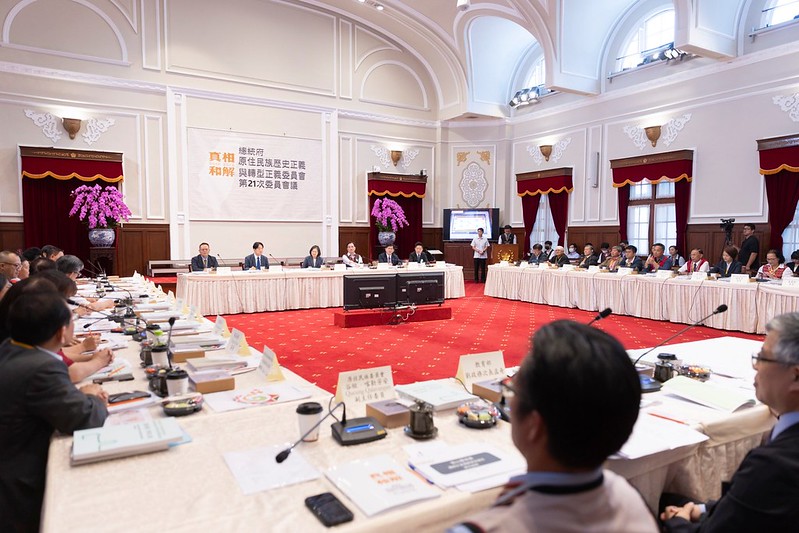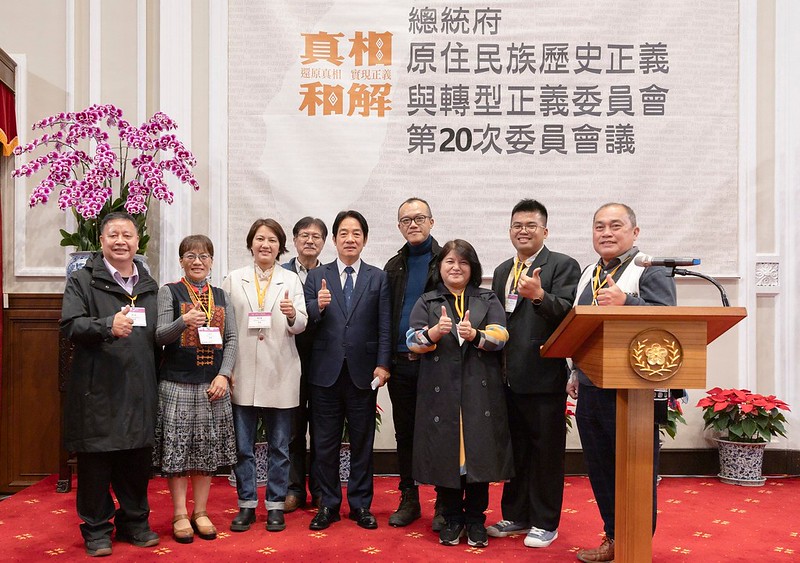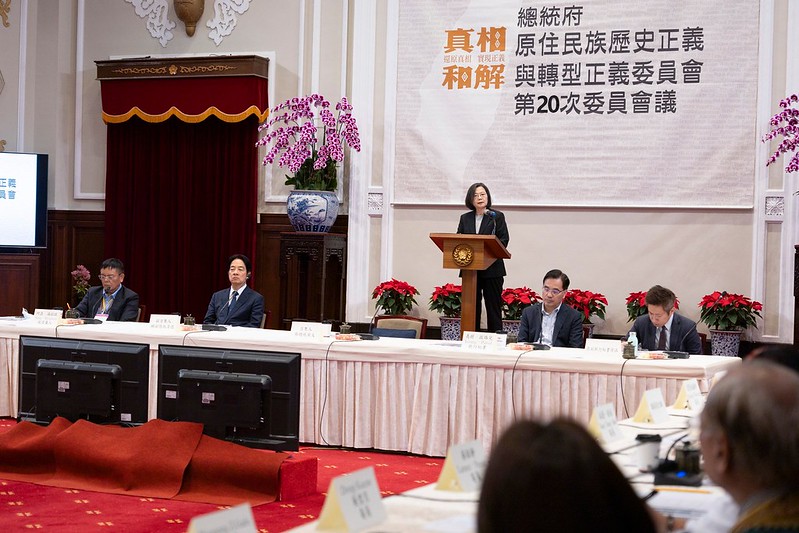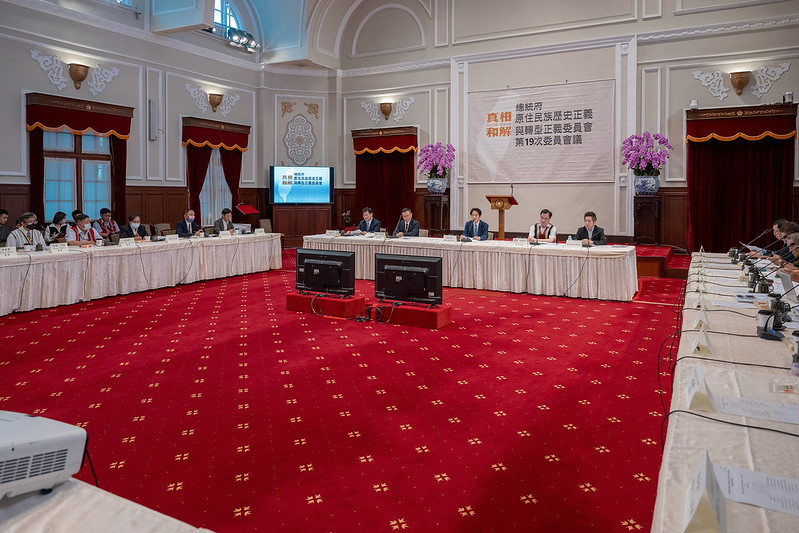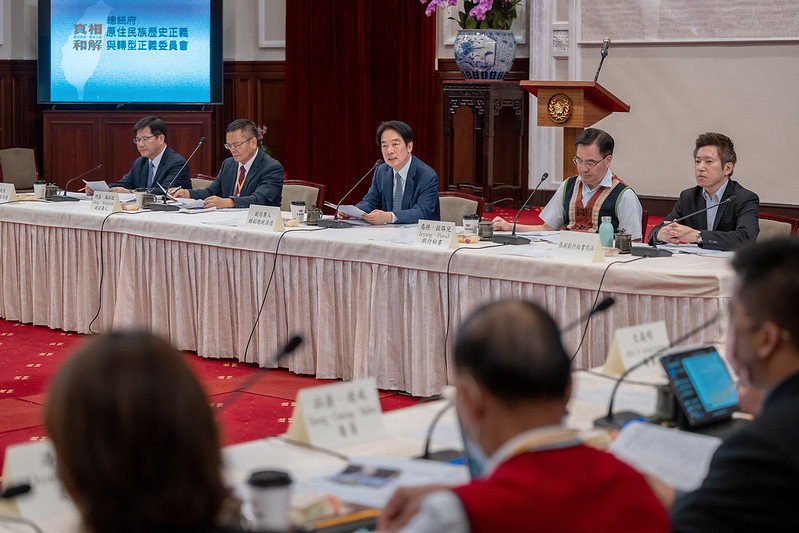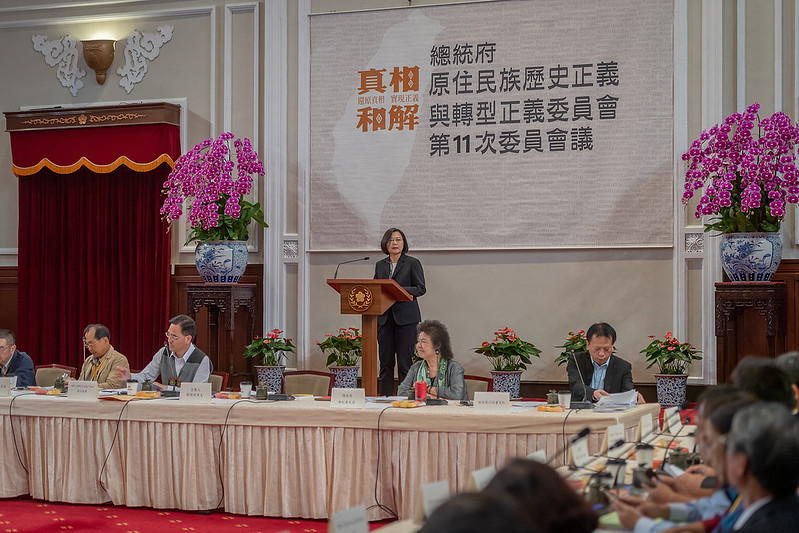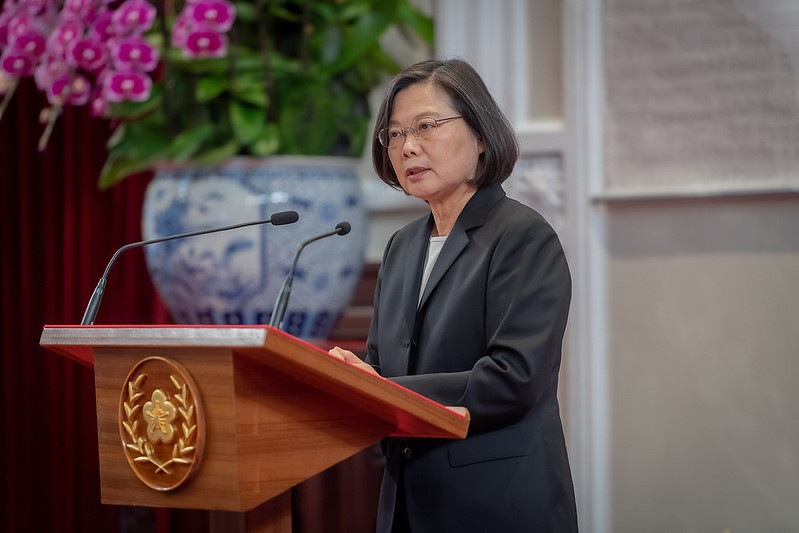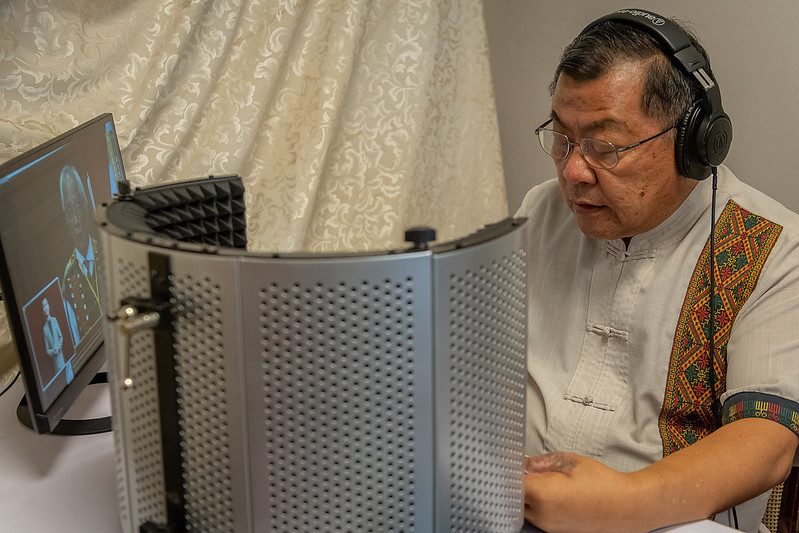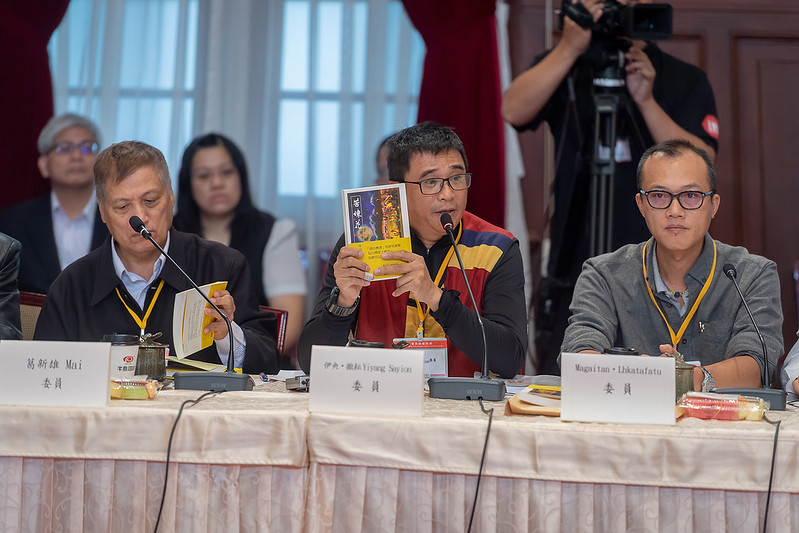News & activities
 News releases
News releases
President Tsai Ing-wen presided over the 11th meeting of the Presidential Office Indigenous Historical Justice and Transitional Justice Committee on the afternoon of October 17. During the proceedings, the president stated that indigenous languages are also our national languages. She said we hope people throughout society become more aware of indigenous languages, and that everyone will work to create an environment that is conducive to the use of indigenous languages.
A translation of the president's remarks follows:
Each of you in attendance at today's meeting has a set of earphones before you. When the Subcommittee on Languages delivers its report a bit later in this meeting, there will be simultaneous interpretation between the Paiwan language and Mandarin.
This will be the first time ever during a formal meeting at the Office of the President that we have had simultaneous interpretation of an indigenous language, meeting the same exacting standards as an international conference.
The reason we are doing this is clear. It is because every one of our indigenous languages is our national language, and must be treated seriously. Previous administrations have not done enough on this front, but we are beginning to make small improvements, one at a time. We're starting to change things, and hope people throughout society become aware of indigenous languages, so that we can then work together to create an environment that is conducive to the use of our indigenous languages.
Therefore, before we begin today's proceedings, I want to introduce Masegeseg Z. Gadu (童春發), convener of the Subcommittee on Languages. He will deliver the entire report in Paiwanese. Meanwhile, providing simultaneous interpretation into Mandarin will be Ljavuras Kadrangian (拉夫琅斯.卡拉雲漾), who is himself an important cultural worker in the Paiwan community.
Let's all give a nice round of applause for both of these veterans, and for all the staffers at the Subcommittee on Languages who worked so hard to prepare the report.
Since the Committee was established three years ago, we have pushed through the passage of the Indigenous Languages Development Act, increased the budget for restoration of indigenous languages by a factor of 5, and supported the establishment by each indigenous group of a language promotion organization. So, working together, we have taken quite a few steps forward.
Just last month, at an International Austronesian Languages Revitalization Forum in Palau that was jointly held by Taiwan, the United States, and Japan, Taiwan's experience in this area received a lot of very serious attention. We are sure that our efforts are meaningful not only to our indigenous friends here in Taiwan, but also provide encouragement for our Austronesian brothers and sisters in the South Pacific.
Of course, languages are not the only important issue facing indigenous peoples. The great majority of our committee members are very concerned about land issues, as well, and especially about progress on the issue of lands reserved for indigenous peoples.
In accordance with a directive I issued at the last meeting of this Committee, at today's meeting we are going to hear a report on progress on the issue of lands reserved for indigenous peoples. Also, included among today's agenda items will be an exchange of views regarding national spatial planning issues.
There are a lot of items on today's agenda, so we need to make good use of our time and get started. Thank you.
After completing her remarks, the president listened to the report on progress on the issue of lands reserved for indigenous peoples and a midterm progress report from the Subcommittee on Languages. She then exchanged views on proposals related to the "Current Spatial Demarcation Plans by Special Municipalities, Counties and County-level Cities" and other issues with Committee members.
